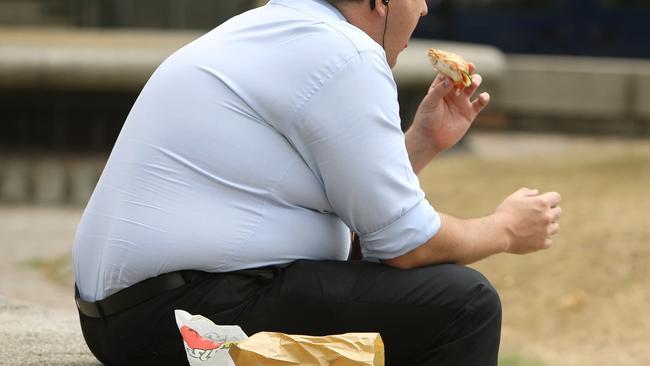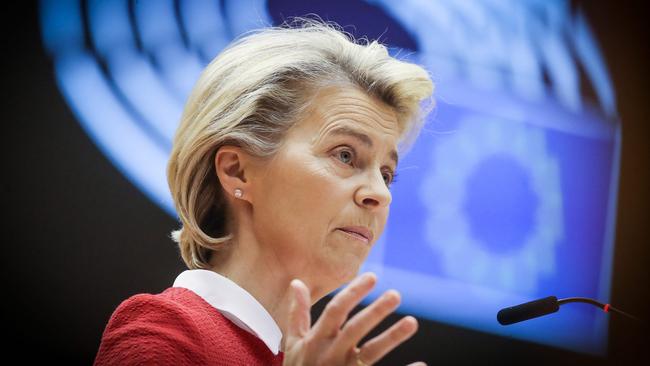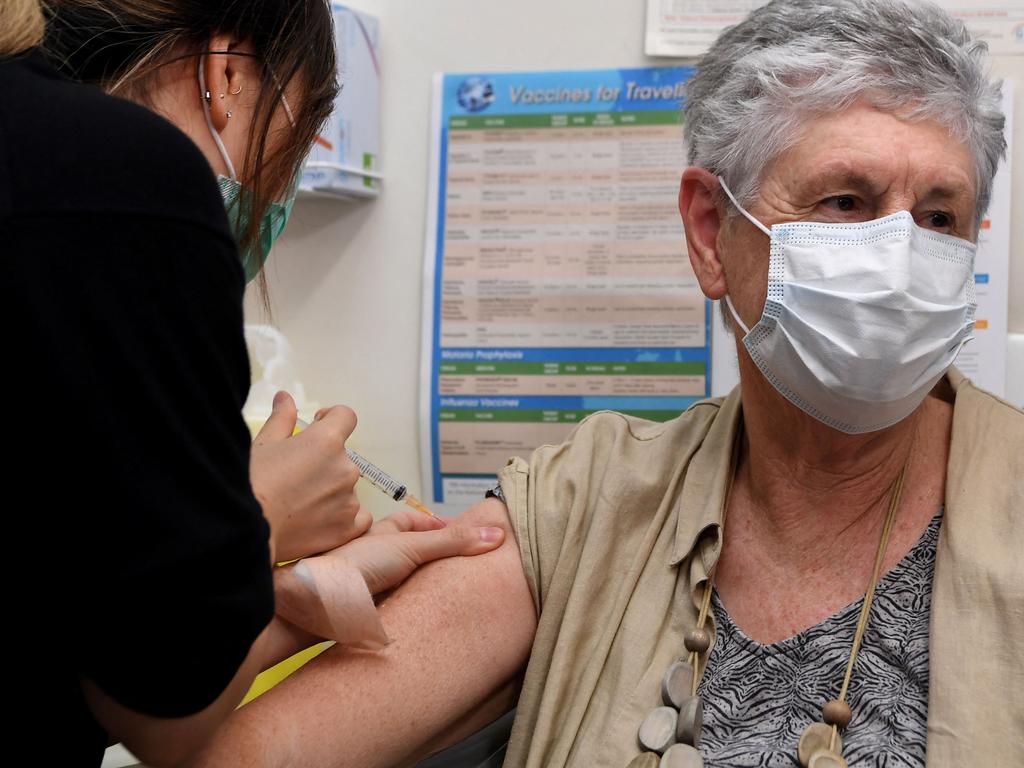When it comes to Covid, don’t mention the O (obese) word
The evidence shows that for those who are overweight the risk of hospitalisation and death are much higher.

Von der Leyen was talking about the EU’s pledge to get Europe “climate fit”: cut carbon dioxide emissions by at least 55 per cent by 2030. But a different “fit for 55” campaign aimed at eating better and losing weight would have been a more cost-effective strategy for dealing with COVID-19 than 13 months of lockdowns, border closures, mask orders and World War II-style increases in debt.
Almost 80 per cent of hospitalised COVID-19 patients in the US have been overweight or obese, according a US Centres for Disease Control and Prevention (CDC) study released last month.

“The risks of hospitalisation, intensive care unit admission, invasive mechanical ventilation and death are higher with increasing BMI,” the CDC says, referring to body mass index, which is weight in kilograms divided by height in metres squared. Obesity, defined as having a BMI above 30, triples the odds of hospitalisation.
In Japan, home to one of the oldest populations, COVID-19 deaths remain less than a 20th of the US rate. And it didn’t even lock down as most US states did. Similarly, Nigeria, Ethiopia and Indonesia — populous countries with poor health systems, where it’s harder to become obese — have COVID-19 death tolls that remain a fraction of that of Britain, where obesity is almost as big a problem as in the US.
“These findings highlight clinical and public health implications of higher BMIs, including the need for intensive management of COVID-19 associated illness, continued vaccine prioritisation and masking, and policies to support healthy behaviours,” the CDC says.
Little new has been done on policies to support healthy behaviour. Indeed, for most of us, lockdowns and mask mandates — still policies of choice from Perth to Toronto — have impaired health, curbed exercise and fuelled increased alcohol consumption.
COVID-19 could have been a lifestyle circuit-breaker: what better incentive to get fit for age 55 than a multi-year pandemic that posed a meaningful risk only to unhealthy people over 60?
The CDC’s latest update on the 569,000 Americans who have died from or with COVID-19 in the past 13 months points out that in only 5 per cent of cases was COVID-19 the only cause. The remaining 95 per cent had an average of four comorbidities. Some of these can’t be helped, such as cancer, dementia and chronic kidney disease, but some can: obesity, liver disease through alcohol abuse and lung damage through smoking.
We can’t simply choose to identify as fit, however politically fashionable. The pandemic has been raging long enough for people to change habits and lose weight, which would have slashed the death toll. US-based dieting service Noom says those who stick to its plan can lose 1kg a week. Jenny Craig reckons customers can lose about 8kg in a month if they try. At 62, von der Leyen even could have been a fit-for-55 ambassador.
Obesity is concentrated among poorer households. Alongside using COVID-19 as an incentive to lose weight, governments could have used a tax on sugar to fund income tax cuts for lower-income workers. Give me a sin tax over an income tax any day. Buying everyone a pair of runners and subsidising gym or weight loss memberships would have been a lot cheaper than shutting gyms, ending team sport, locking people inside and blowing $90bn on JobKeeper.
Lockdowns, by discouraging people to venture out in the sun, also worsen endemic vitamin D deficiency, which studies are finding correlates strongly with hospitalisation and death from COVID-19. About half of Americans are vitamin D deficient, as are three-quarters of African-Americans and Hispanics, who are two to three times likelier to be hospitalised with COVID-19.
“Northern Europeans, who had to survive living through winters, developed lighter skin, which helped them produce more vitamin D in general and higher levels in the summer,” University of Chicago professor and health economics and public policy specialist David Meltzer says.
Vitamin D strengthens the immune system. Meltzer’s research in Chicago found individuals who were vitamin D deficient were 77 per cent likelier to test positive for COVID-19. A Spanish study published in October found a 90 per cent reduction in ICU admission among patients who had been given high vitamin D doses.
“None of these studies is absolute proof, but vitamin D is very cheap, it’s what you would think would be a great thing to try even if you didn’t find the evidence totally compelling,” Meltzer says.
Every country in Europe and every US state that introduced a mask mandate experienced a surge in COVID-19 last year. Perhaps reducing sunlight on the part of our body most exposed to it may not have been wise.
Rather than promoting exercise, weight loss and cheaply available vitamin D, governments deliberately scared people. More than 40 per cent of Democrat voters in the US thought the risk of hospitalisation if infected with COVID-19 was more than 40 per cent, when the correct answer was 1 per cent to 5 per cent, according to a recent Gallup poll.
The policy responses have supercharged the already huge subsidy from those who choose to live healthily and those who don’t. As a society, we’d rather shut schools and suspend civil liberties for more than a year than dare mention, for fear of causing offence, the powerful relationship between obesity and COVID-19. It’s more offensive putting children in masks for nine months.








Listening to European Commission president Ursula von der Leyen wax lyrical about the EU’s “fit for 55” policy at Joe Biden’s climate summit last week, I couldn’t help but think this would have been an equally effective slogan to motivate a more rational response to COVID-19.